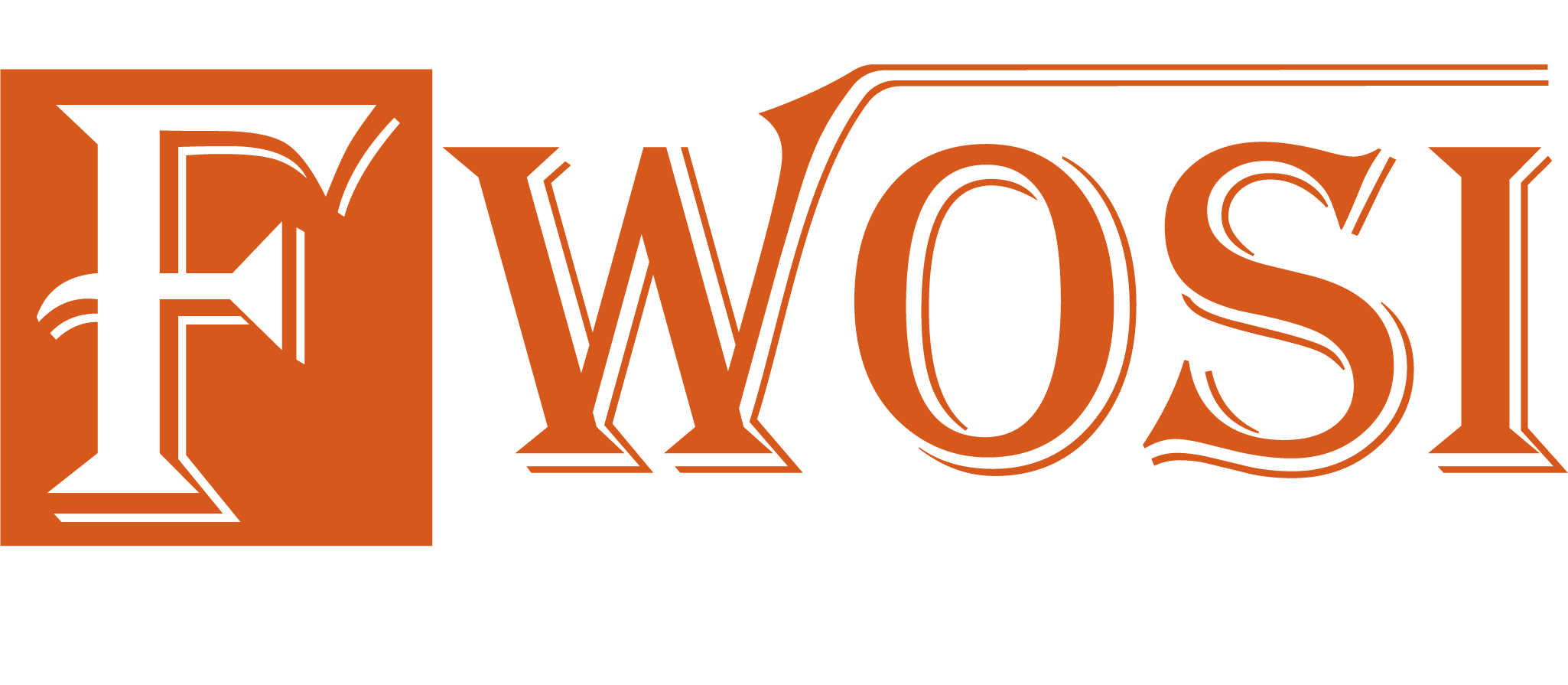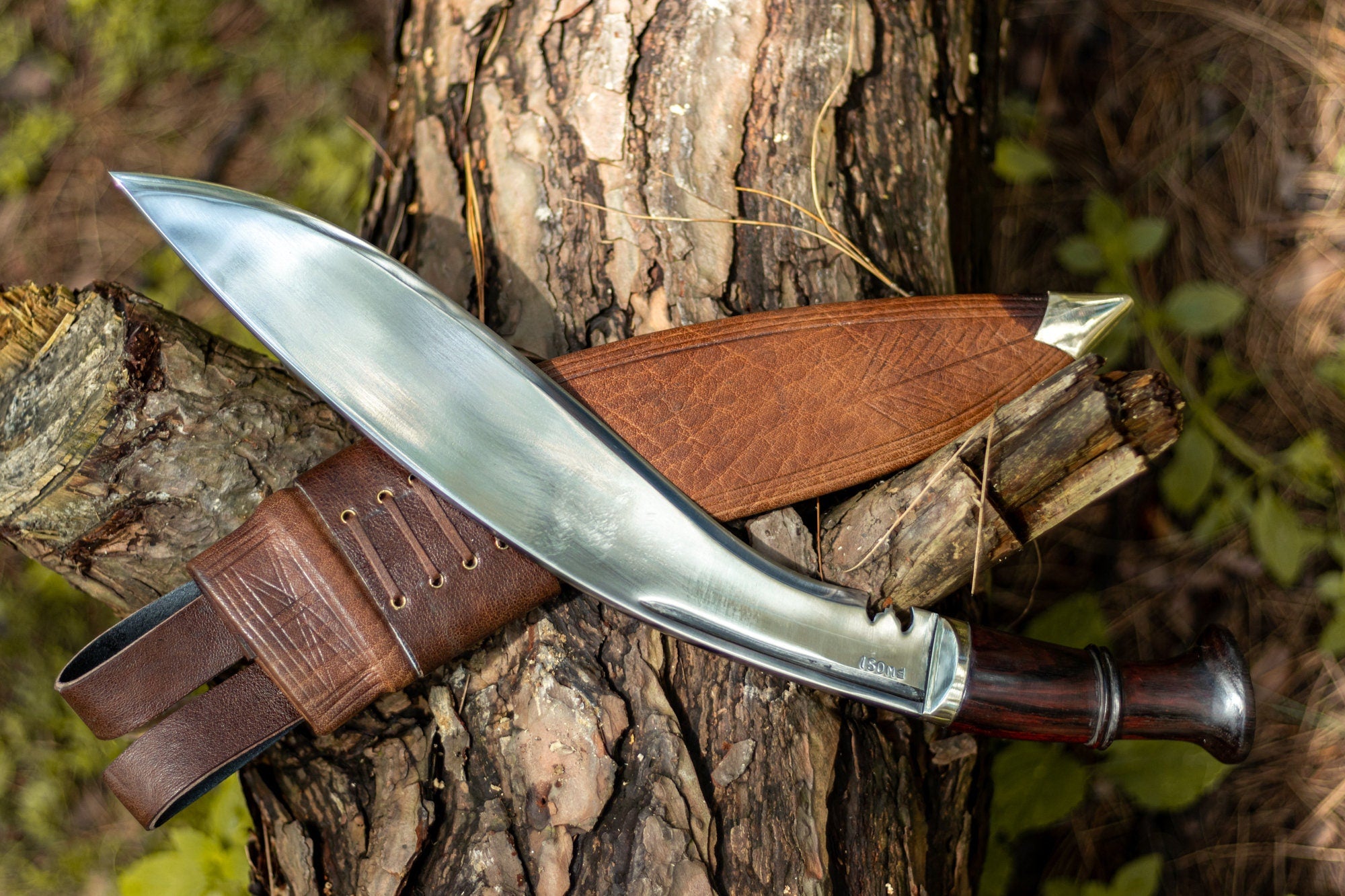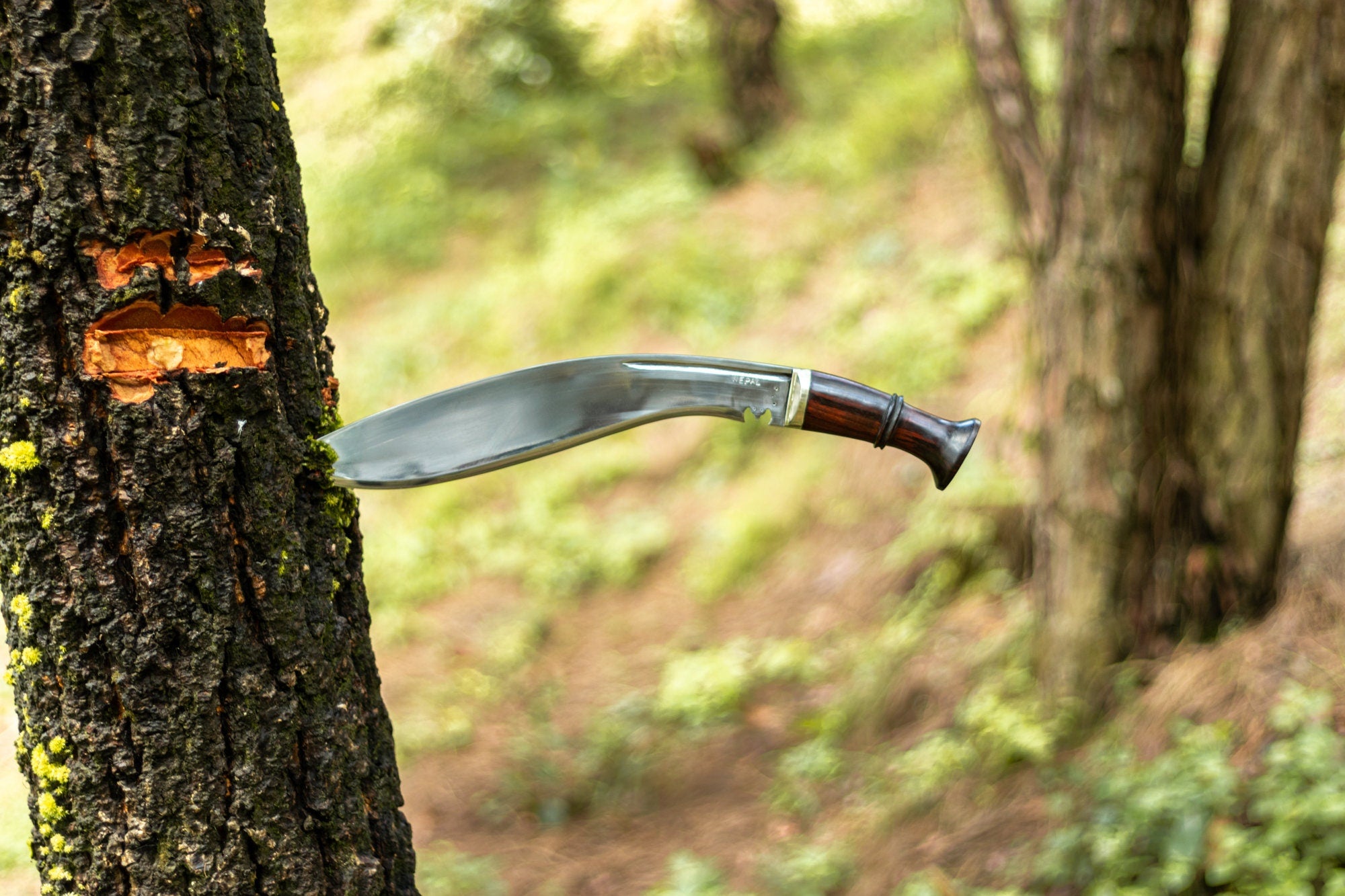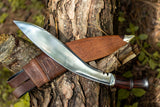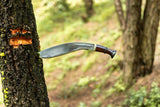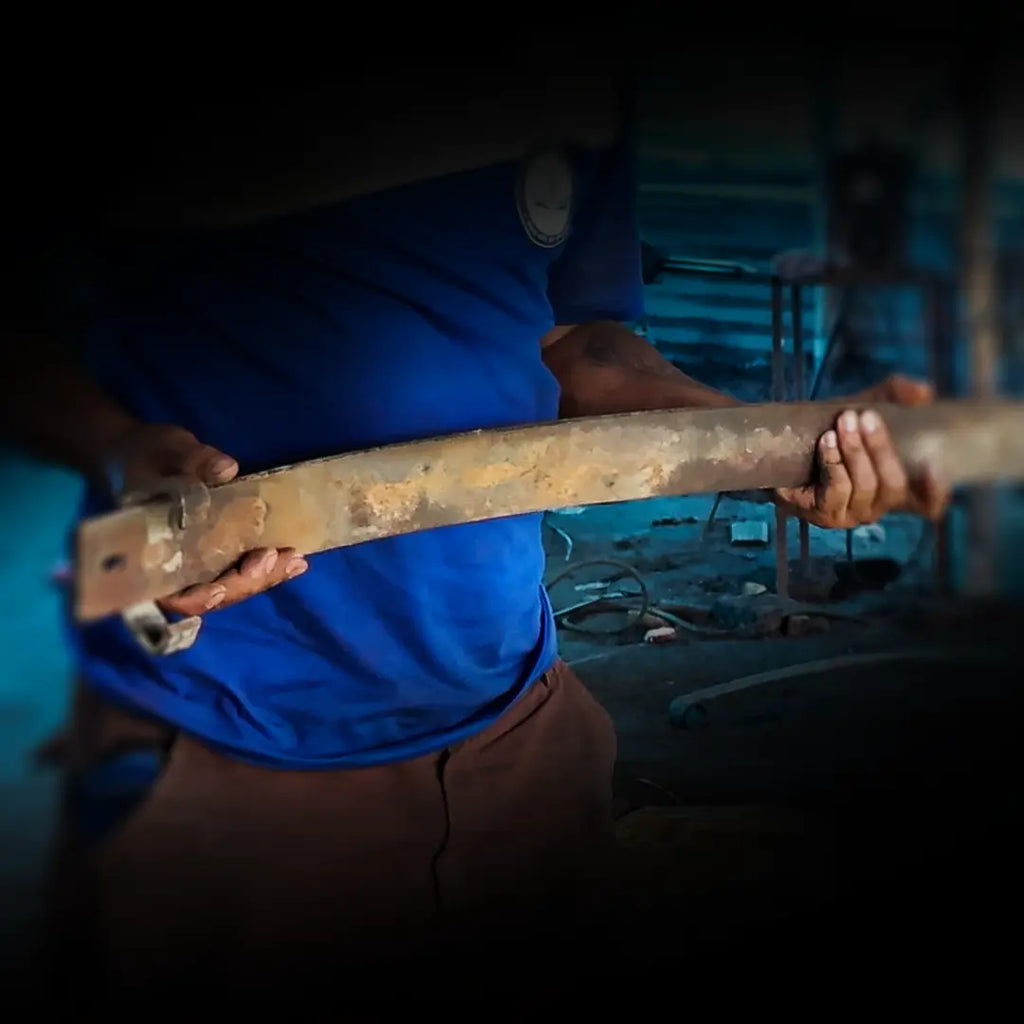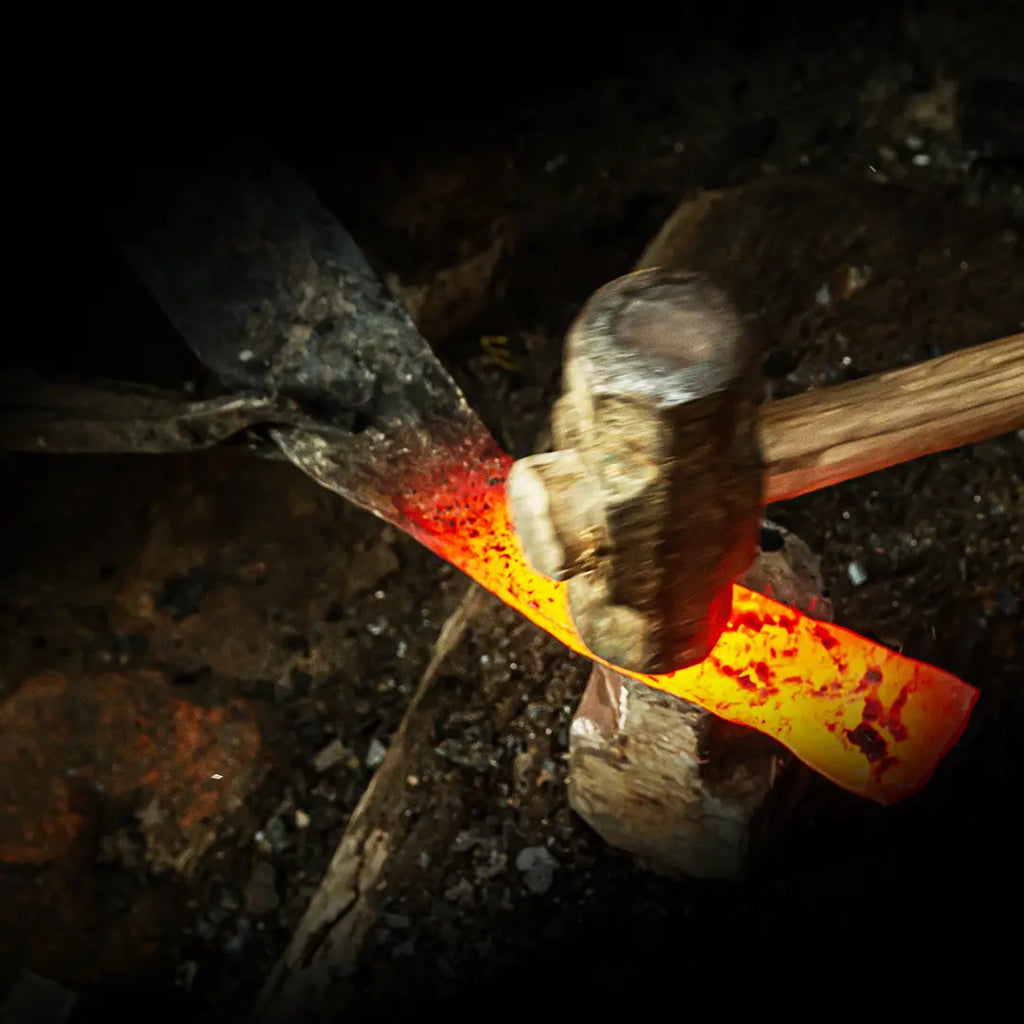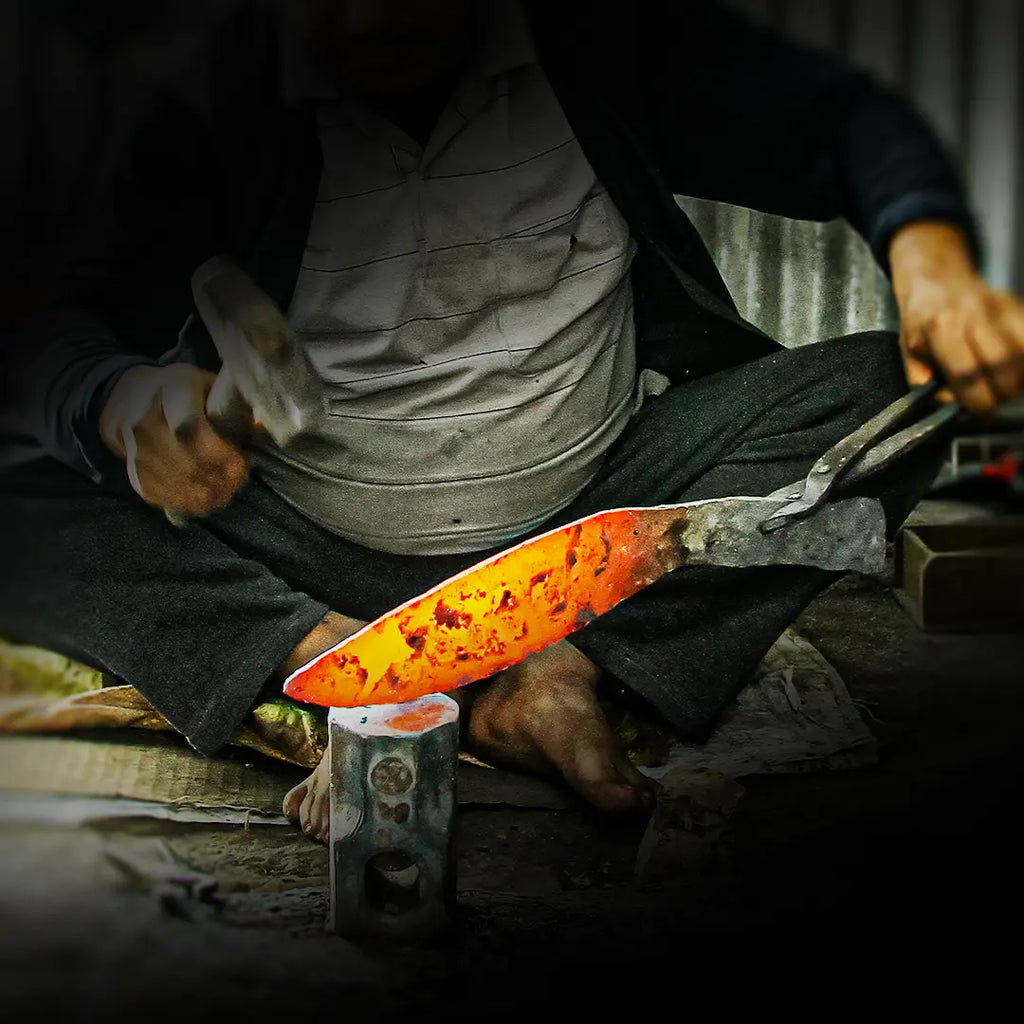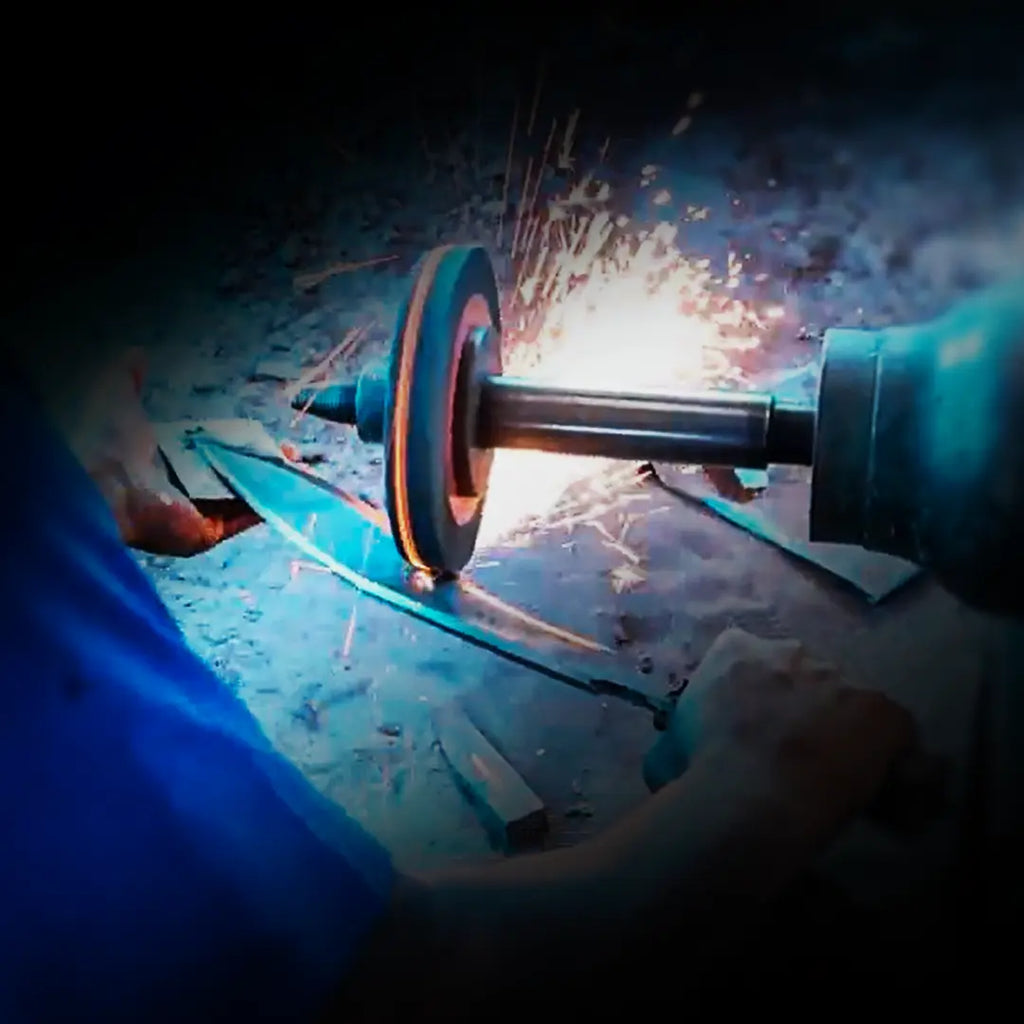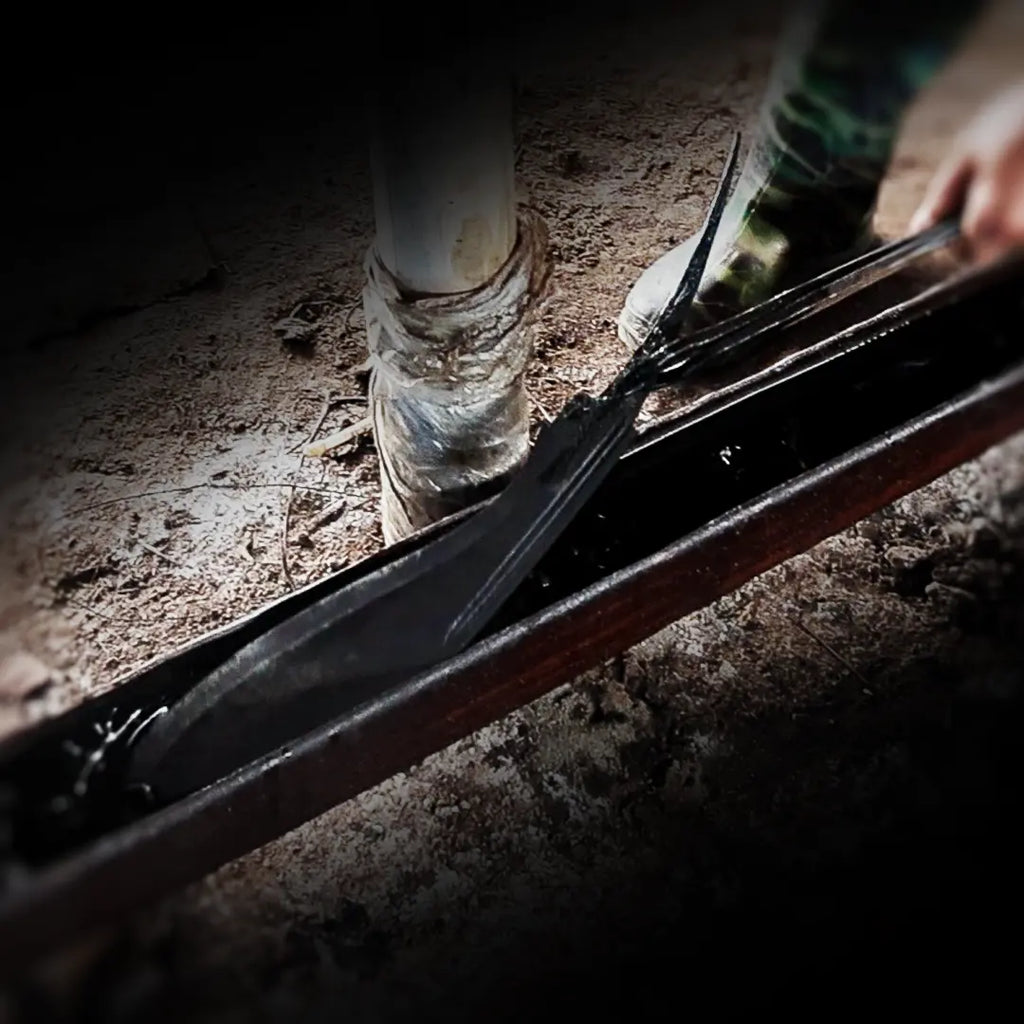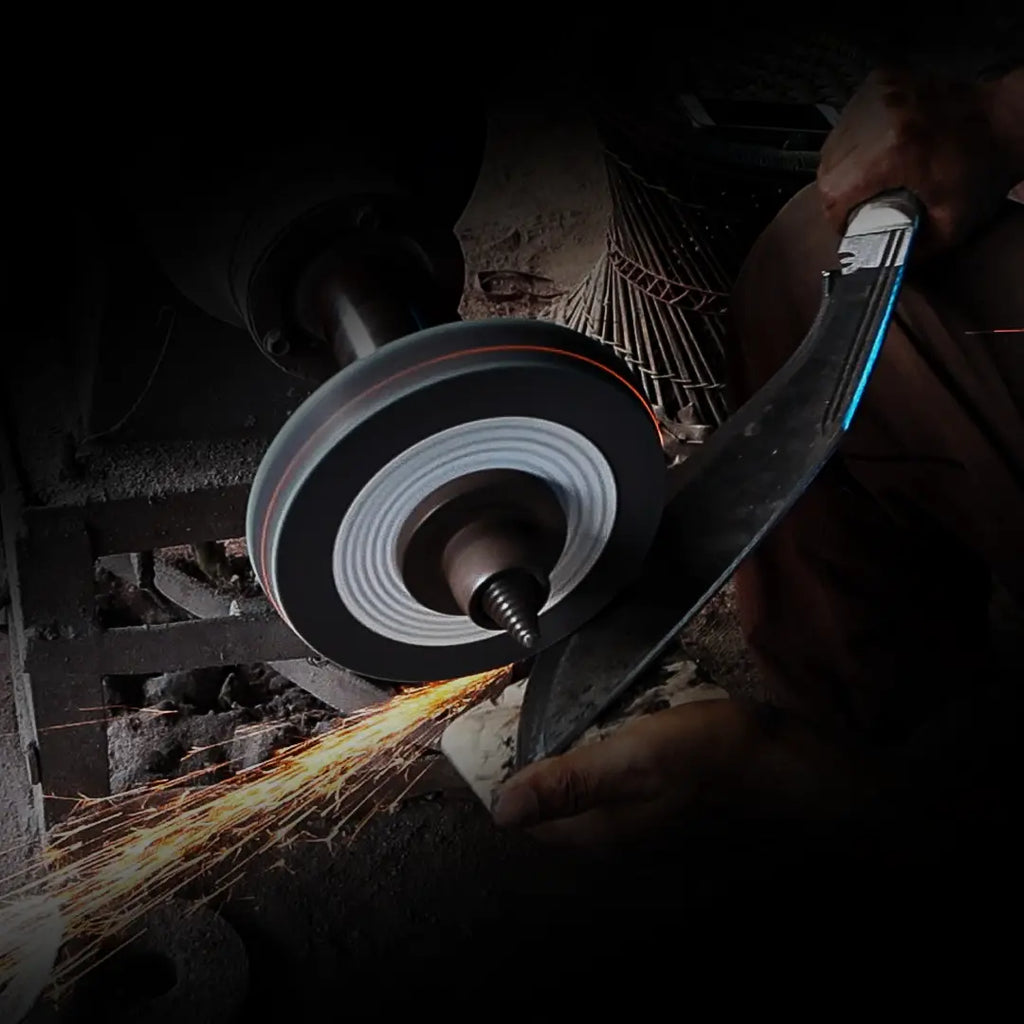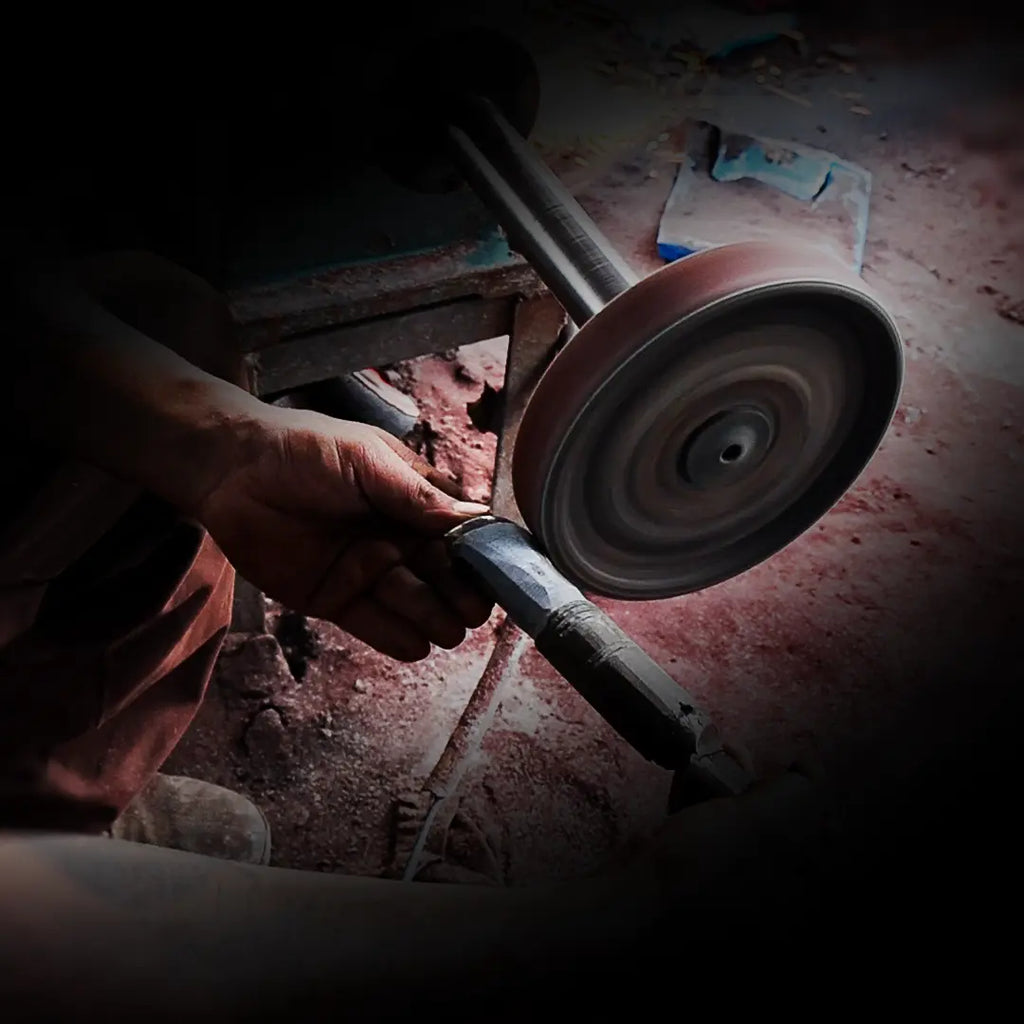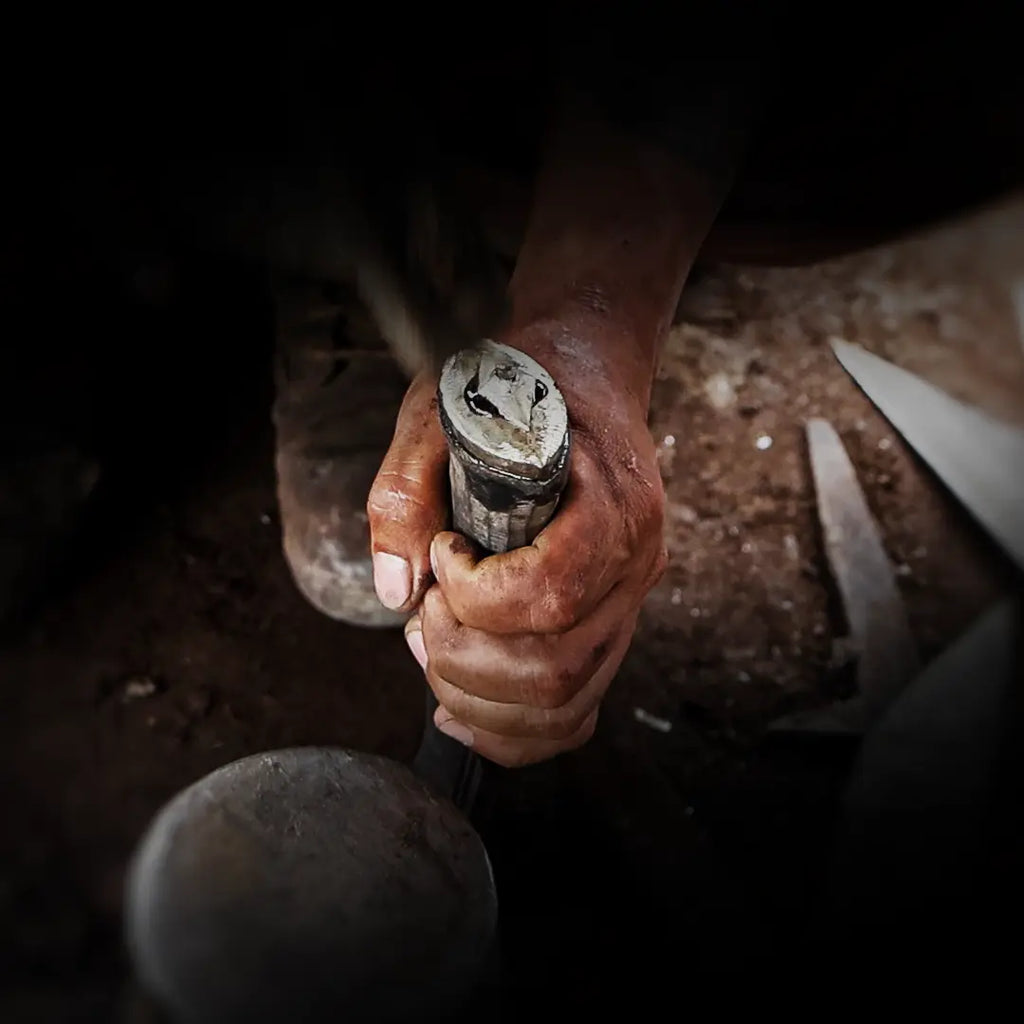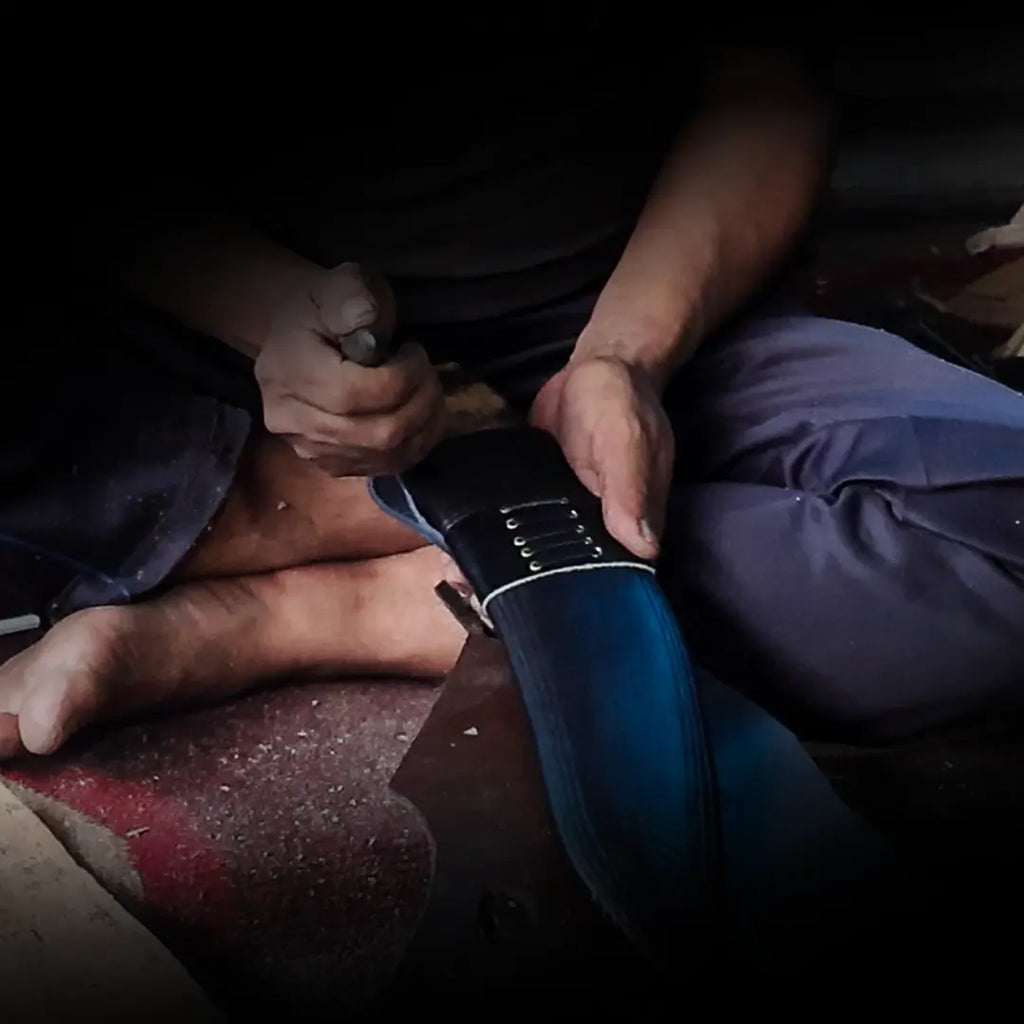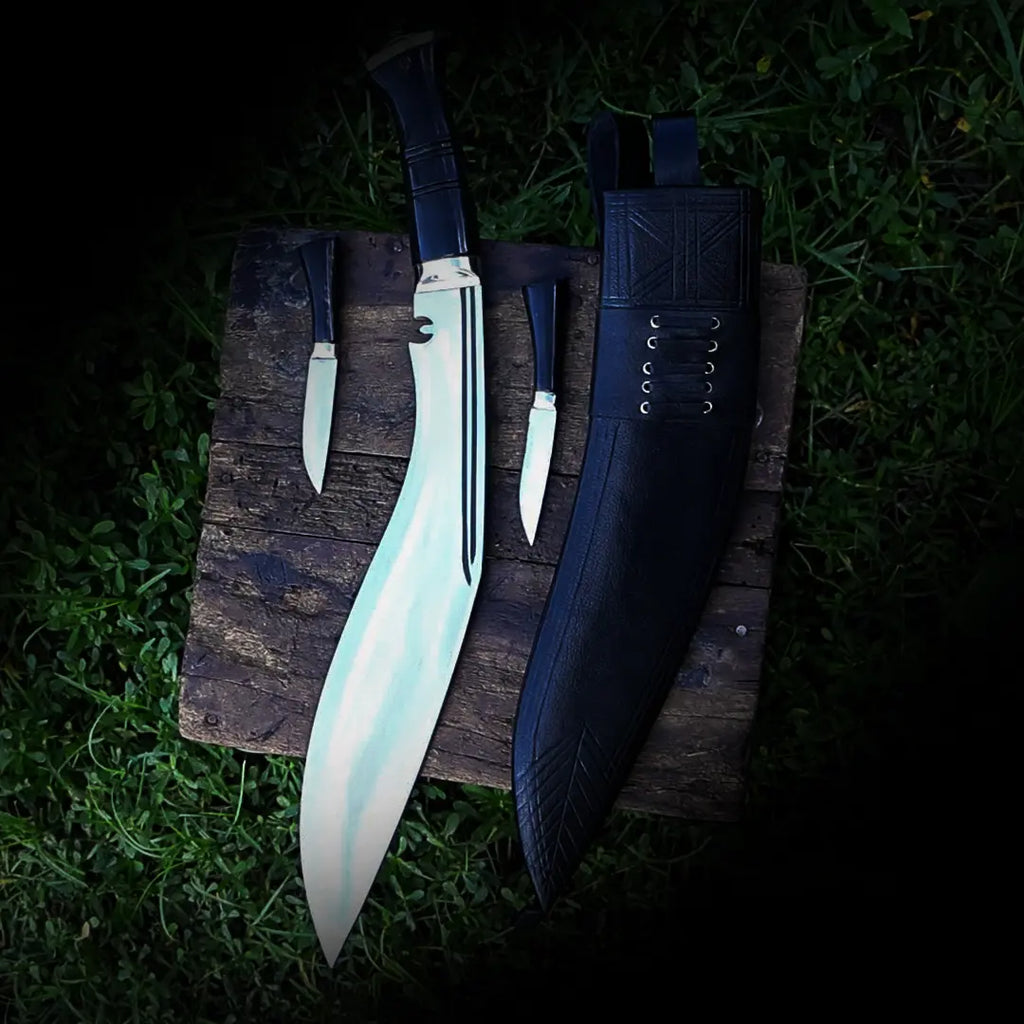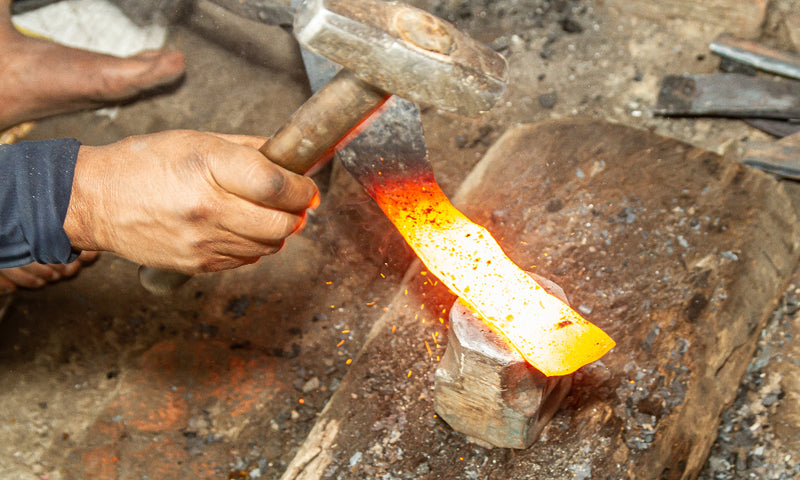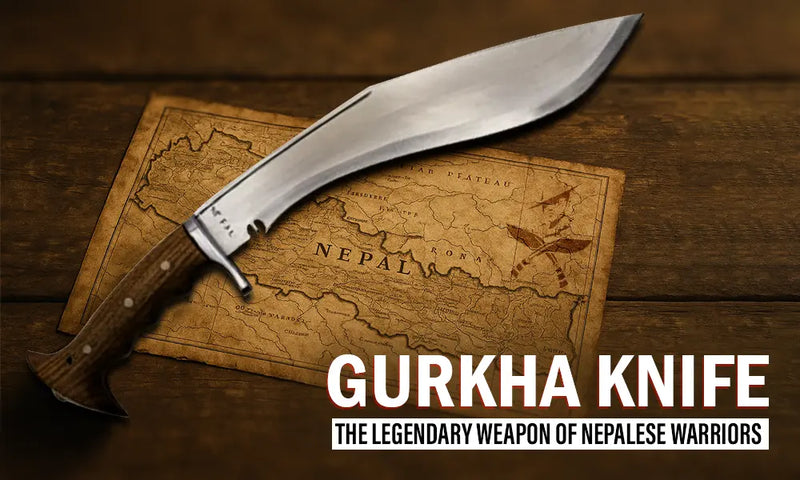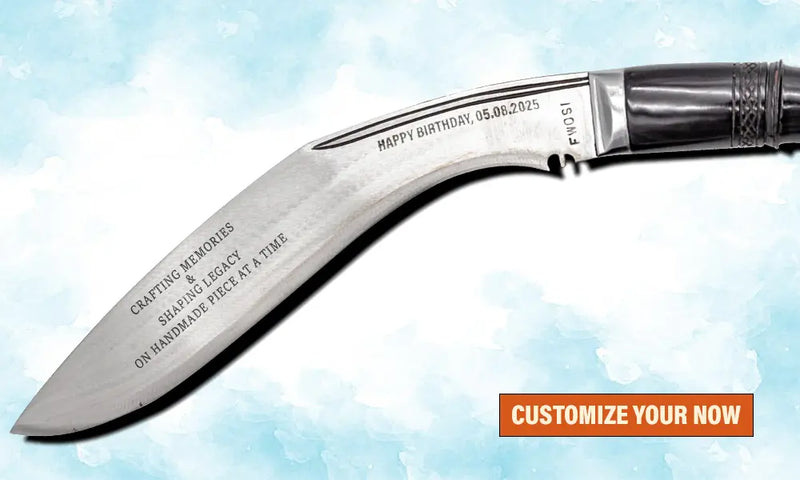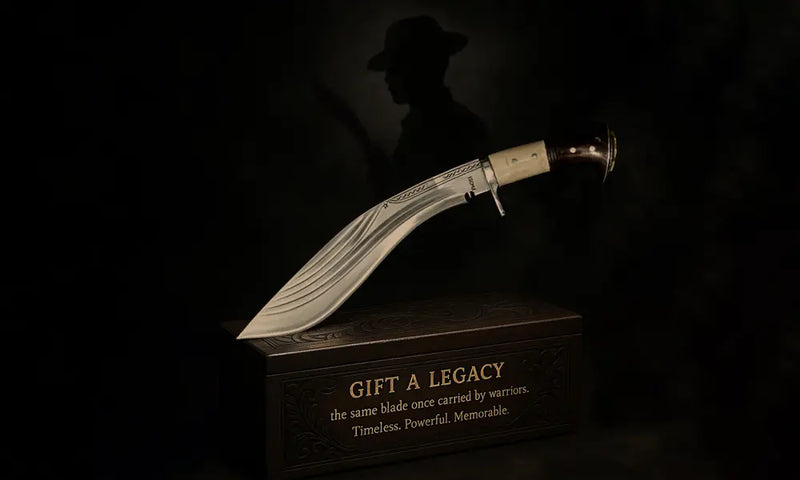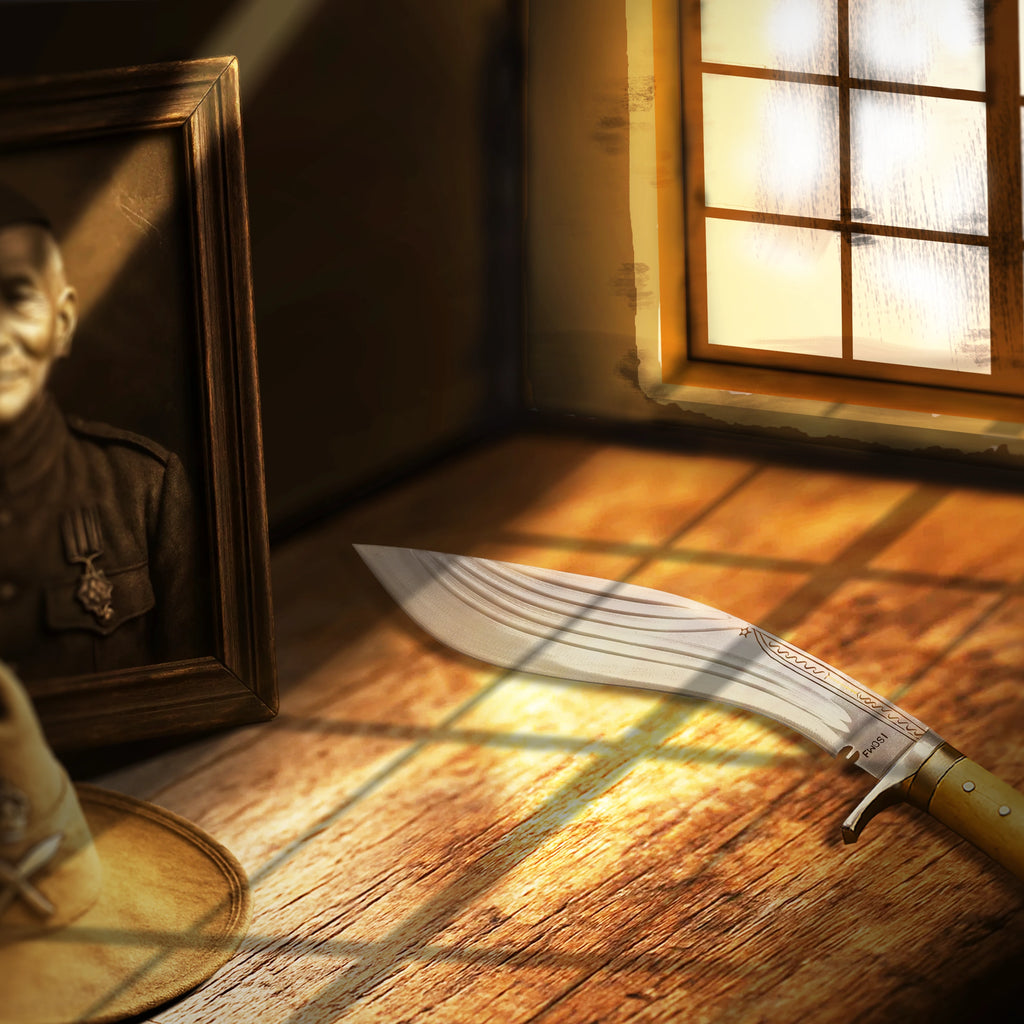Traditional Gurkha Style Kukri
Free Shipping
Free standard shipping all over U.S
Estimated to be delivered on 5 to 10 business day
Free Returns
Learn More.
This traditional Gurkha-style kukri draws inspiration from the iconic blades once carried by Gurkha soldiers in Burma and Malaya during World War II. Hand-hammered by skilled Nepalese artisans, each kukri is a visual celebration of cultural heritage, imbued with history and craftsmanship. The gracefully curved silhouette and refined hand-forged finish make it a compelling piece—perfect for collectors and cultural enthusiasts alike. Consciously crafted as a decorative heritage collectible, it's intended for display and cultural storytelling, not functional use.
Make It Truly Yours – The Art of Blade Customization
Crafted with Purpose. Rooted in Culture. Designed for Legacy.
Every blade tells a story. Some are forged for strength, others for tradition, and some are crafted to reflect the personality of their owner. At FWOSI, we believe your blade should be more than just a tool, it should be an extension of who you are. That’s where customization comes in.
What is Blade Customization?
Blade customization is the process of tailoring a knife or sword to match your exact needs, preferences, and style. From the handle material to the length, from a personal engraving to a sheath color that stands out — each detail adds character and meaning.
Why Customize Your Blade?
- A customized blade reflects your individuality, making it unique and truly one of a kind.
- Choosing the right handle, length, or edge design can optimize comfort, balance, and performance.
- Many of our designs are rooted in centuries-old traditions — customizing lets you carry history while adding your personal touch.
- A customized blade becomes more than a purchase — it becomes a keepsake, a gift, or even an heirloom.
How Can You Customize?
1. With FWOSI, customization is simple but powerful:
2. Choose from classic bone/horn or strong, earthy wood for a $100 upgrade.
3. Add up to 10 characters etched into the steel — initials, a name, or a word that inspires you ($10 per letter).
4. Adjust the size to your exact preference — $50 per added inch.
5. Select a sheath that suits your style, choosing from black (standard) or upgrading to brown, red, or a custom color.
The Benefits of Customizing with FWOSI
– balanced, efficient, and tailored to how you use it.
– materials chosen for strength and long life.
– While customization adds upfront cost, it pays off in longevity and uniqueness.
– your blade becomes part of your journey.
👉 Ready to design your own blade?
Fill in the “Create a Custom Handmade Blade” below to open the customization form and begin creating a piece that is truly yours.
Care Instructions:
✔ DO:
- Wipe the blade after use.
- Apply light oil every 2–4 weeks.
- Store in a dry place.
✘ DON’T:
- Don’t soak or wash with water.
- Don’t store the blade in the sheath while damp.
The Kukri is not just a knife; it’s a timeless emblem of Nepali pride, Gurkha valor, and ancestral craftsmanship.
For centuries, it has been more than a tool of utility or war. It is a symbol woven into the very identity of Nepal and its people.
Historically wielded by the fearless Gurkha soldiers, the kukri earned international reverence on battlefields from World War I to Afghanistan. It stands as a mark of bravery, resilience, and unshakable spirit.
To carry a kukri is to carry a piece of history, one that tells the story of loyalty, duty, and silent strength.
But its legacy isn’t confined to warfare. In Nepalese households, the kukri is revered and displayed during festivals like Dashain and Tihar, and is often used in rituals to honor gods and ancestors. Passed down through generations, it becomes a sacred heirloom, a bond between past and present.
At FWOSI, we honor this legacy by crafting every kukri in the traditional Nepali way, by hand, using fire and skill. Each piece carries not just steel, but the story of a people, a land, and a way of life that refuses to be forgotten.
FWOSI Product Disclaimer
All FWOSI products, including kukris, machetes, swords, axes, and related items, are handcrafted collectibles created to honor artistry and tradition. They are intended solely for decorative purposes, meaningful gifting, cultural heritage appreciation, and showcasing craftsmanship and legacy. ⚠️ Please note: these items are not designed or marketed for violence, self-defense, hunting, or survival use, and FWOSI does not encourage the misuse of any product. By purchasing from FWOSI, you acknowledge and agree that our creations are cultural artifacts, not functional weapons. We also kindly remind customers to review and comply with their local laws and regulations before making a purchase.

